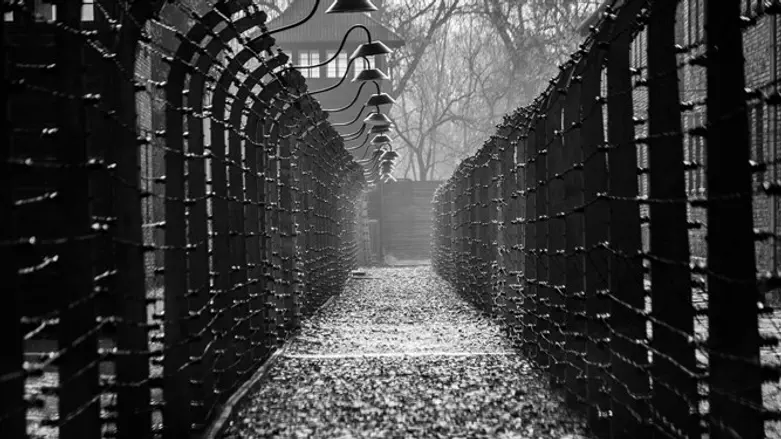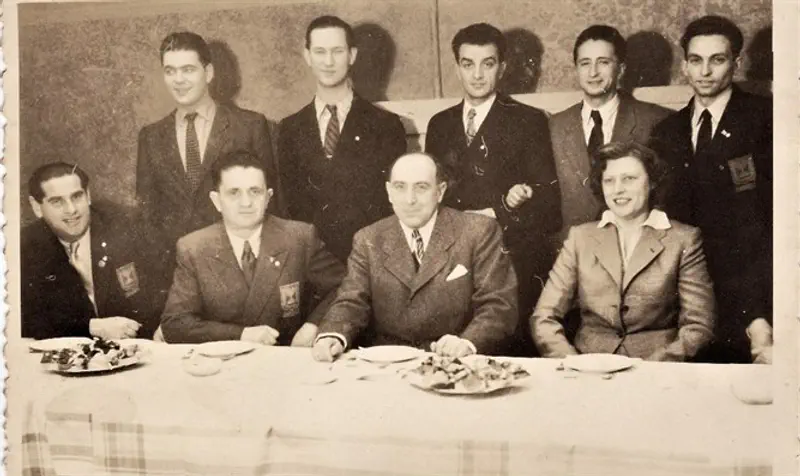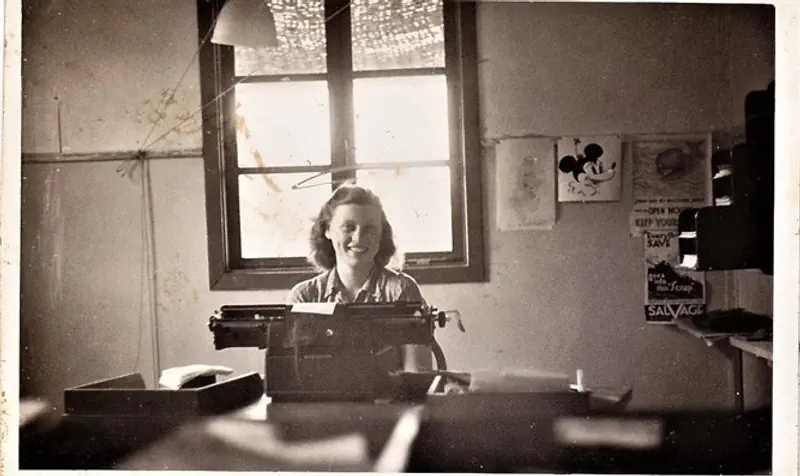
“Refugee” is a screenplay about a 16-year-old Jewish girl, Elisabeth Buchhalter Segal, who fiercely holds on to love, hope and strength to survive the nightmarish world she wakes up in as Nazis invade her home country of Austria. She never loses the deep-felt compassion she has for other people, even though persecution and inhuman cruelty dramatically alter the course of her life.
It’s1938 and foreboding danger hangs close overhead like a dark, damp cloud threatening to erupt in lightning and rage. SS officers menacingly taunt Jews as they walk down the streets wearing identifying yellow Stars of David emblazoned onto their clothing. To Elisabeth’s father, Ladislav, a prominent architect, the Star of David is a badge of honor, even if he gets killed for it. Ladislav solemnly reveals to Elisabeth that he always wears his star with great pride. No one can desecrate the love and reverence he has for Judaism in his heart.
Shots ring out onto the street as Elisabeth and her parents are temporarily blissfully distracted by the music of Johann Strauss at the Vienna Opera House. Everyone frantically races outside, where people are screaming as they run from explosives going off. Razor sharp shards of glass cover the pavement. Storefronts are vandalized. Synagogues and Jewish homes, schools and businesses are burned beyond recognition. It’s November 8, 1938, the harrowing Night of Broken Glass - Kristallnacht. Nazis kill almost 100 Jews and round up 30,000 Jewish men, sending them to concentration camps in Germany.

Practically overnight, the landscape of Europe changes scarily. The world is brought down a dark and twisted path, leaving behind footprints of antisemitism and hate that are still walked in today. Practically overnight, the landscape of Europe changes scarily. The world is brought down a dark and twisted path, leaving behind footprints of antisemitism and hate that are still walked in today.
Practically overnight, the landscape of Europe changes scarily. The world is brought down a dark and twisted path, leaving behind footprints of antisemitism and hate that are still walked in today.
Elisabeth’s father, like so many other European Jews, wanted to believe this horrific storm would pass. He waits too long and her parents tragically miss the deadline to get their own passports. They arrange a marriage for Elisabeth with a horrid, but well-connected man named Hans so she can escape Austria. Elisabeth is just 16 years old when she boards the Artemissimo, a crowded, filthy boat packed with Jewish refugees who have remnants of their lives stored in suitcases scattered everywhere.
Elisabeth wishes she could turn back and hide herself forever in her parents’ arms. The boat ride is an unbearable three months long, and many people get sick and die due to living in such unsanitary conditions. Elisabeth’s husband suddenly abandons her for another woman. Feeling completely lost and alone, she cries to a kind and funny man named Brunno, who assures her that she could not possibly be upset about a man as horrendous as her husband. Brunno begrudgingly takes Elisabeth under his protective wing. The two develop a precious and endearing friendship that saves them both. When Brunno is sick and can’t eat because his teeth ache, Elisabeth chews up morsels of food for him like a mother bird feeding her young.
As the Artemissimo nears Palestine, everyone has to swim for the shore. Choking on salty seawater, the world becomes a blur and Elisabeth fears she will die in the frigid, murky water. Brunno spots her flailing and dives off the boat, pulling her with him all the way to the sandy shoreline of Tel Aviv. When volunteers separate them, Elisabeth cries because Brunno rescued her in so many different ways, and Brunno confides that she gave him hope and transformed him into a courageous warrior.
Elisabeth struggles to adjust to the difficult life in Palestine. She works long hours waiting tables, and it is not as safe as she thought. British soldiers round up Jews like cargo and regularly abuse them. Packages she sends to her family get returned. Elisabeth falls into a forbidden love with a non-Jewish Scottish soldier who gets killed in battle right after he asks her to marry him. Brunno is there with her when she gets the heartbreaking news. He encourages Elisabeth to move to Haifa. She takes an office job there and finds a dusty old ping-pong table shoved inconspicuously against a wall.
Elisabeth was Austria’s Junior National Table Tennis Champion until her losing opponent flew into a rage over having to play with a “filthy Jew”, and a cowardly manager escorted her out of the arena. Memories flash before her as she beats co-workers and champion ping-pong players. Brunno excitedly cheers her on. Elisabeth is the first woman to join the Beitar Table Tennis Team.

One night, Brunno sorrowfully reports to Elisabeth that his parents and crippled brother have been killed in Auschwitz. He looks down, his voice shaken when he tells Elisabeth that her parents didn’t make it, either. Devastated and filled with rage, Elisabeth declares she will never let happiness or joy touch her again. There is no point in getting attached to anyone because everyone she loves dies. She tells Brunno that their parents and his brother were too pure for this evil world that never deserved them. She is only thankful that now nothing else can hurt them. Elisabeth starts hysterically crying until she passes out. As always, Brunno is there to catch her.
Israel is officially declared a nation in 1948. Elisabeth is the star table tennis player of Beitar, and they are invited to compete internationally. When Elisabeth hears they are going to Vienna, she feels like she’s about to explode with anxiety and grief and tells the club leader she cannot go. As Elisabeth helps the team pack, she sees the Star of David stitched onto their uniforms and remembers how proudly her father wore his. Filled with a protective courage and strength she never knew she had, Elisabeth boards the plane. Her voice echoes through the Vienna sports arena. She tells the vast audience they play for every Jew, alive and dead, and that their passion and bravery make them already victorious.
That same pitiful sports manager recognizes her and tries to apologize, but Elisabeth tells him she’s already forgiven him. She wants him to know that all it takes is one person to change the world. Elisabeth feels the presence of her deceased parents and fiancé with her as she powerfully returns serves. She mentally retracts everything she said the night she found out her parents were killed. She reminds herself that being miserable is a choice. She vows to look forward to the future with an open heart and to honor the loved ones she’s lost by being happy. Applause breaks out into the steady silence. Elisabeth is carried triumphantly on top of her teammates’ shoulders.
Sometimes a gift gives you more than you could ever imagine. Sometimes life gives you more than you think you can bear. But after tragedy, war, endless suffering and unimaginable loss, Elisabeth’s spirit still soars. Freedom is never letting your circumstances define or defeat you.
Based on Elisabeth’s memoir, the screenplay is a poignant, heart-wrenching but triumphant story that shows how humanity is like a candle that refuses to burn out and be overtaken by darkness. It is touchingly written by Robin Bradford, award winning playwright and screenwriter, who will be co-producing the film with Elisabeth’s son, internationally acclaimed, multi-award winning Israeli composer, Misha Segal.http://www.mishasegal.com/refugee/
